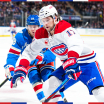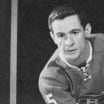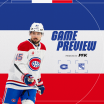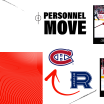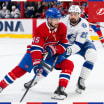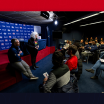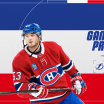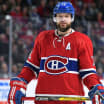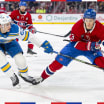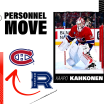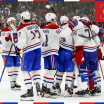Remembering '93: Jacques Demers
The Cup-winning former Habs bench boss looked back on Montreal's 24th Cup win with canadiens.com in 2013
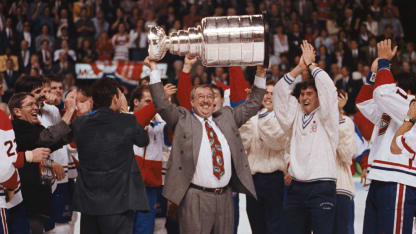
© 1996-98 AccuSoft Inc., All rights reserved
While he may have been out of the NHL coaching ranks for two years ahead of helming the Habs, Demers hadn't lost his ability to lead a hockey team when he arrived on the scene in June 1992. Proof of that was in the fact that the Canadiens posted the sixth best record in the league in his first season behind the bench. Despite their impressive campaign, however, the Habs were not among the favorites to capture the precious trophy, most notably after they dropped five of their last seven regular season games.
"There were clubs like Boston and Pittsburgh who were more heavily favored than us to win it. Still, I told the players that we were going to shock the hockey world. I had a great deal of confidence in that group of players," explained Demers, who was the last head coach to claim the Stanley Cup in Montreal, in a sit-down with canadiens.com in 2013 to mark the 20th anniversary of the conquest. "It has to be said that I had the best goaltender in the NHL [Patrick Roy], I had an extraordinary captain in Guy Carbonneau, and another thing I had was a team that was full of character. Guys like Eric Desjardins, Jean-Jacques Daigneault, Mike Keane, Kirk Muller, guys who would not accept defeat."
Looking to further exploit their standing as an underdog, Demers found a rather uncommon source of inspiration just prior to the start of the NHL's second season. While he determined that the idea was a perfect motivator for his troops, he wanted to ensure that the players would be accepting of the concept as well, as a family.
"I heard the song Nothing's Gonna Stop Us Now by Jefferson Starship on the radio," recalled Demers regarding the 1987 hit track. "I went to see my captains and I asked them what they thought about playing that song before we headed out on the ice prior to each one of our games. Like the song said, we're going to build this together, nothing is going to stop us. The guys were all on board."
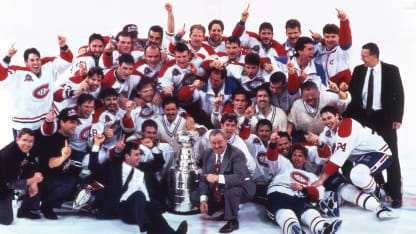
And the results certainly reflected the fact that they bought in to Demers' plan. After dropping the first two games of their series against the Nordiques in the opening round, the Habs won 12 of their next 13 games, eliminating Quebec, Buffalo and Long Island along the way. Only one team remained between them and a 24th Stanley Cup: the Los Angeles Kings.
"We were confident because we won all of those games in overtime, but when we got to the Stanley Cup Finals against the Kings, we respected them," mentioned Demers on the subject of the California-based franchise that amassed 14 fewer points than the Canadiens during the regular season that year. "We knew that we were playing against Wayne Gretzky. We knew that he'd won more than a few Stanley Cups and that he was aware of what it took to win another one. But, we were confident in ourselves. We weren't arrogant. We were respectful."
Twenty-five years later, Demers is still known for having had both the audacity and the courage to make a move that if not undertaken, could have ultimately changed the course of history. Already trailing 1-0 in the series and facing a one-goal deficit in the latter stages of Game 2, the two-time Jack Adams Award nominee asked referee Kerry Fraser to check to see if the curve on Kings defenseman Marty McSorley's stick was legal. That slip-up on the part of Los Angeles allowed the Canadiens to come from behind and win in overtime on goals from Eric Desjardins.
"When we had McSorley's stick looked at, it angered a lot of people in Los Angeles, but I was only doing my job. Serge Savard and Jacques Lemaire supported me in my decision, and they congratulated me right after the game," indicated Demers. "We couldn't allow ourselves to go down two games to none in the series.
"During Game 1, a few players noticed that he had an illegal stick, and they let me know," he continued. "The fact that guys like Guy Carbonneau and Vincent Damphousse were so vigilant allowed me to become aware of it. When you get started in the playoffs, that's when you really start noticing the real character players. Those guys are looking around and paying attention to everything."
A few days after that all-important victory, the Canadiens won a fourth straight game to earn their 24th Stanley Cup title. While the fact that he'd captured the Stanley Cup for the first time in his career was clearly the highlight of that tough playoff run, another moment that took place during the Finals against the Kings will always remain etched in his memory.
"My best memory was when I gave Donald Dufresne a chance to play Game 5 of the Finals. If he hadn't played, his name would not have been inscribed on the Cup," confided Demers regarding Dufresne, who only played one postseason game before suiting up for the decisive tilt against Los Angeles. "He was a seventh defenseman and one of the best individuals I've ever met in my life. When I was able to give him the opportunity to win the Cup at the Forum and have his name on the Stanley Cup, that was an incredible memory for me."
Gestures like those Demers put forward on behalf of Dufresne provide a good illustration of the family spirit that was at the heart of the Canadiens throughout the season that year. The players enjoyed playing for him, and the career coach couldn't have asked for more from his soldiers. That's the reason he never hid his appreciation for them, noting that he was lucky to have had the chance to work alongside such extraordinary people.
"When we took the bus over to the cars on the day of the parade, I spoke to the players and I thanked them all individually for giving me their very best on the ice and for supporting me because I wasn't always easy to deal with during the season," confessed Demers. "I had a group of exceptional players who gave everything they had for me. I owe them that Stanley Cup title."
This article, which originally appeared on canadiens.com in June 2013, was updated in conjunction with the 25th anniversary of the team's 1993 Stanley Cup Championship.


